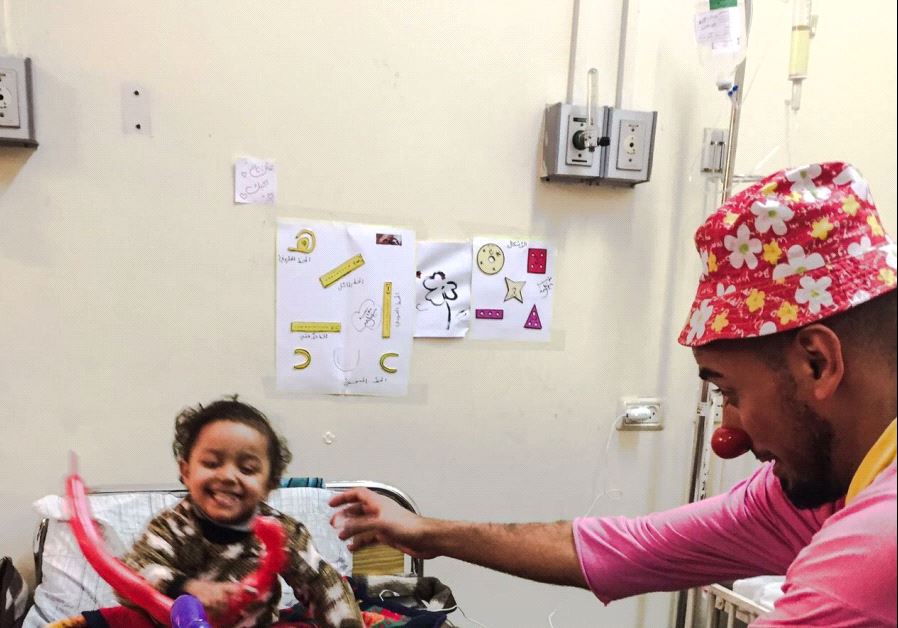The young Gazan who fell in love with clowning amidst overcoming illness
Abu Shaaban, a medical clown from central Gaza, was inspired to work as a medical clown after first receiving treatment in Israel as a cancer patient.
 Abdullah Abu Shaaban clowning at al-Rantisi children's hospital in Gaza(photo credit: I CLOWN YOU)Updated:
Abdullah Abu Shaaban clowning at al-Rantisi children's hospital in Gaza(photo credit: I CLOWN YOU)Updated: